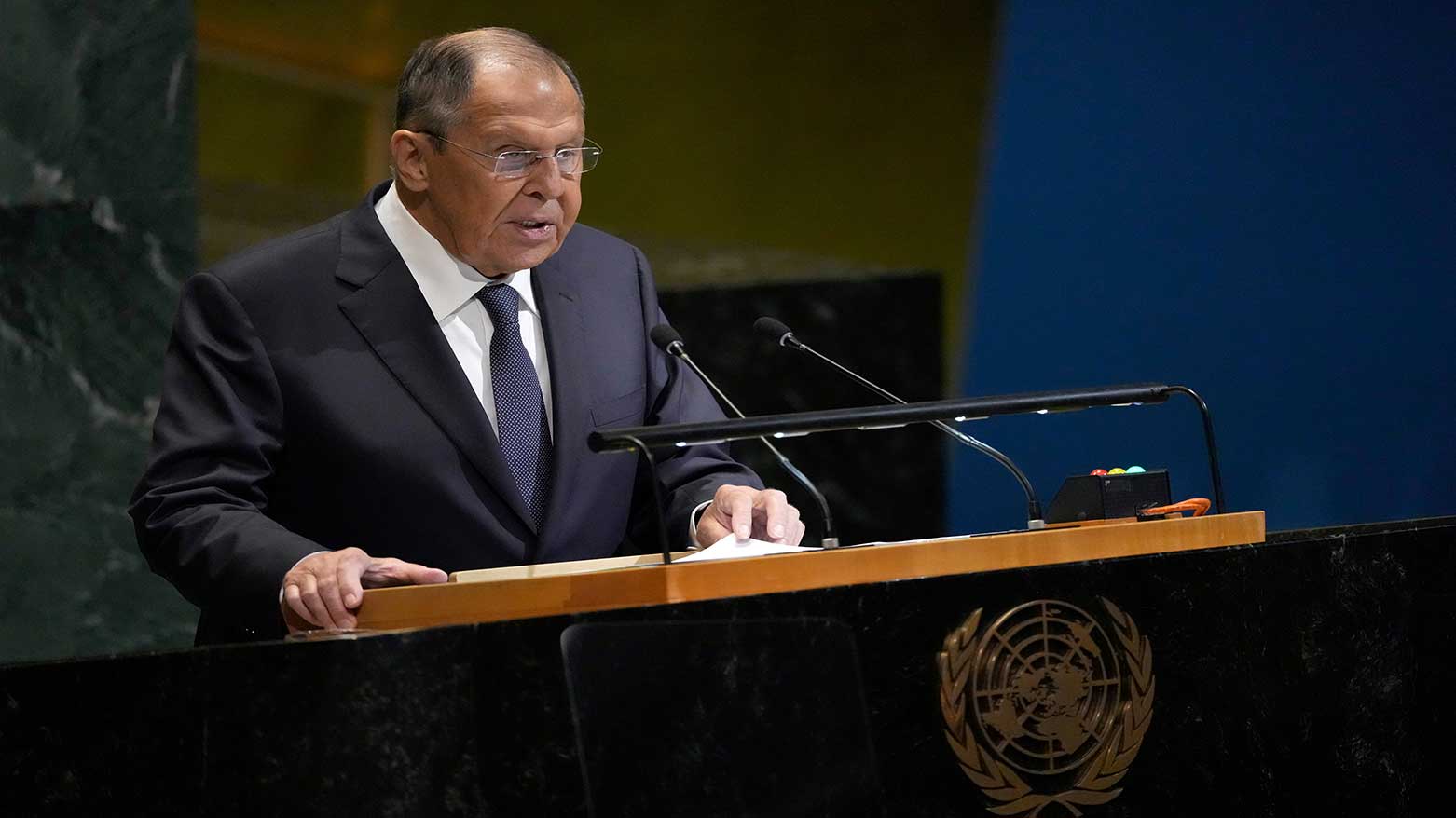Russia Says No Intent to Attack Europe but Warns of Decisive Response to Aggression
Lavrov Denies Plans to Attack Europe, Warns of Decisive Response to Aggression, and Signals Willingness for Dialogue with the U.S. Amid Tensions with NATO

ERBIL (Kurdistan24) — As tensions between Russia and NATO continue to simmer, Russian Foreign Minister Sergey Lavrov told world leaders at the United Nations General Assembly on Saturday that Moscow has no intention of attacking Europe but will respond decisively to any act of aggression against it.
Lavrov’s remarks come amid a series of unauthorized flights into NATO airspace, which the alliance has attributed to Russia. Incidents in Poland and Estonia, including drones shot down over Polish territory and Russian fighter jets reportedly entering Estonian airspace, have raised alarm across Europe.
Moscow denies the violations, claiming its planes did not enter Estonia and that the drones posed no threat to Poland. European leaders, however, have described the incidents as deliberate and provocative, aimed at testing NATO’s response.
Despite his firm stance toward NATO, Lavrov struck a more measured tone regarding the United States. Following last month’s summit between President Donald Trump and Russian President Vladimir Putin, Lavrov expressed cautious optimism about continued dialogue with Washington, describing the U.S. administration as pragmatic.
He stressed that while Russian and U.S. interests do not always align, both sides are committed to avoiding direct confrontation and pursuing diplomacy.
“The most important thing is not to let disagreements result in a hot confrontation,” Lavrov said, noting that some European nations, in his view, have allowed diplomacy to become overly dependent on Washington.
He suggested that U.S. support for Ukraine will continue, along with the imposition of sanctions, but emphasized Moscow’s willingness to engage in candid discussions.
The Russian minister also addressed the war in Ukraine, now entering its fourth year, defending Moscow’s military actions as measures to safeguard its security in response to NATO expansion and to protect Russian speakers in eastern Ukraine.
Lavrov’s remarks followed U.S. President Trump’s statement earlier in the week expressing belief that Ukraine can reclaim all territory lost since Russia’s 2022 full-scale invasion.
Lavrov criticized what he called Western double standards, particularly in the Middle East, condemning Hamas’ October 2023 attack on southern Israel while also denouncing Israel’s killing of Palestinian civilians and rejecting any justification for the potential annexation of the West Bank.
“We are essentially dealing with an attempt at a kind of coup d’état aimed at burying U.N. decisions on the creation of a Palestinian state,” he said, highlighting the ongoing humanitarian crisis in Gaza, where tens of thousands have died in Israeli military operations.
Ukraine’s President Volodymyr Zelenskyy, addressing the assembly, warned that continued inaction would place other nations at risk. “Ukraine is only the first,” he said, calling on world leaders to press for Russia’s withdrawal and reinforce international norms against aggression.
The unfolding dynamics at the U.N. illustrate a complex balance: Moscow seeks to project strength and assert its security concerns, while also keeping diplomatic channels with the U.S. open.
NATO countries, meanwhile, remain on alert for provocations in Europe, and global attention is divided between the war in Ukraine and escalating crises in the Middle East.
Tensions between Russia and NATO have escalated since Moscow annexed Crimea in 2014, and then the war in eastern Ukraine started. NATO has expanded its military presence in Eastern Europe, deploying troops, aircraft, and air defense systems to Poland, the Baltic states, and other frontline countries to deter Russian aggression.
Russia views these moves as a direct threat and often uses unauthorized flights, drones, and other provocations to test NATO’s readiness and gauge its responses without escalating to full-scale conflict. Military experts see these maneuvers as both a show of strength and a strategic assessment of NATO’s capabilities.
The diplomatic backdrop remains complex, with Russia balancing firm warnings to NATO with measured engagement toward the United States. Moscow seeks to exploit divisions within the alliance while signaling strength to domestic audiences.
NATO’s credibility depends on responding consistently to provocations, but overreaction risks escalation. Observers note that Russia increasingly relies on hybrid tactics—including cyber operations and strategic messaging—alongside conventional military deployments, underscoring the delicate balance between deterrence, diplomacy, and the risk of unintended confrontation.